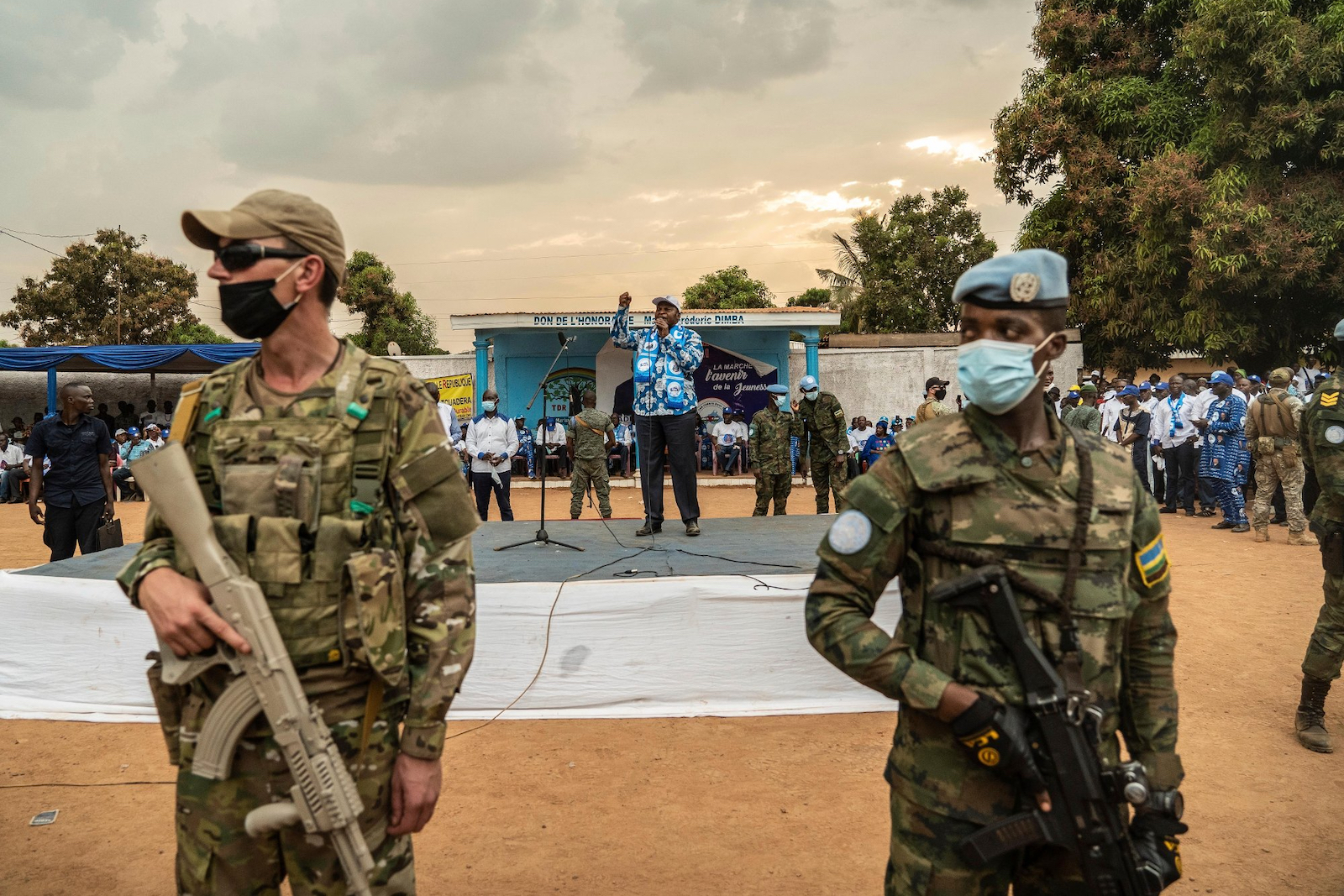
French Security Policy in Disarray
Earlier this month, members of the French military staff sent an open letter to President Emmanuel Macron attacking his government’s domestic policies. Macron’s government has condemned this intervention as an attempt on the part of the military to campaign in support of Marine Le Pen’s National Rally party in the run-up to the forthcoming French regional elections.
But meanwhile, in French-speaking Central African Republic, the security intentions of France are giving no less rise to confusion. Could Paris be conducting a diplomatic offensive against Bangui, the capital of the Central African Republic? Last month in April, Macron convened a military council to discredit the Central African Republic.
On 10 May, a French national was arrested in Bangui, the capital of the Central African Republic. A huge arsenal of weapons and ammunition was found in his home. According to prosecutors, Juan Remy Quignolot was an agent of the French secret service but posed as a French journalist-consultant in the Central African Republic.
He has been accused of spying on President Faustin-Archange Touadéra, training and supplying mercenaries with weapons, and bribing several people to give false testimony against Russian military instructors. The Russians are there by invitation from the government to train its military. Piqued by what is seen in France as Russia trespassing in its own backyard, a press campaign has brewed up in the French media. France appears to be struggling to restore a national reputation tarnished by its historical legacy while trying to discredit its competitors.
Of course, it is natural that France’s image in the region has been tainted by its own chequered colonial past, and there are many competing international interests from China, Russia, and other countries looking to exploit this fact and win competitive advantage in what was previously France’s own backyard.
Some commentators suggest that Paris has launched a diplomatic war against Bangui because cooperation between the Central African Republic and Russia has been demonstrably successful. They also suggest that France is actively waging an information war against Russia’s presence in the Central African Republic in order to divert attention from the situation in Chad, where President Idriss Déby was recently killed by members of an armed group which was actively supported by France.
Under Idriss Déby, Chad became a major influence in neighbouring Central African Republic, where it had close links with rebel groups. Touadéra has several concerns with the new Chadian strongman, Mahamat ibn Idriss Déby Itno, also known as Mahamat Kaka, and is closely monitoring Déby’s son and would-be heir. Relations between Faustin-Archange Touadéra and Idriss Déby were complicated, to say the least. For this reason, there was much speculation about whether Touadéra would attend the funeral on 23 April of his Chadian opposite number. Touadéra kept up the suspense until the last minute, finally opting to ease tensions and to attend the funeral.
Now, after the death of Idriss Déby, the security situation with Chad’s neighbours has deteriorated significantly. Many governments are concerned about the possible influx of armed groups from Chad into their countries. This could lead to the deployment of French forces on the territory of many countries in West Africa, which would give France additional leverage and the opportunity to reassert its interests there. But Macron first needs to stem the voices of revolt from within his own military hierarchy, and re-establish clear control at home in France as commander-in-chief.

